| 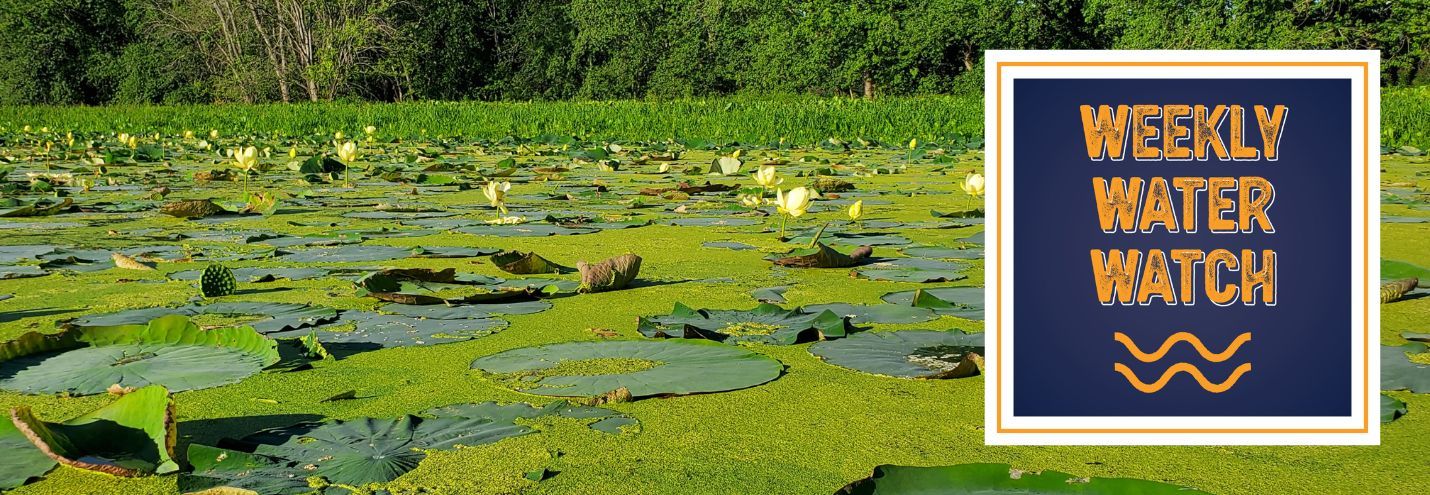 | | 12 Beaches with an E. coli Advisory:
Beed’s Lake Beach (Hampton, Franklin County, IA)*
Big Creek Beach (Polk City, Polk County, IA)*
Clear Lake Beach (Clear Lake, Cerro Gordo County, IA)*
Crandall's Beach (Big Spirit Lake, Spirit Lake, Dickinson County, IA)*
Lake Ahquabi Beach (Indianola, Warren County, IA)*
Lake Darling Beach (Brighton, Washington County, IA)*
Lower Pine Lake Beach (Eldora, Hardin County, IA)*
McIntosh Woods Beach (Clear Lake, Ventura, Cerro Gordo County, IA)*
Nine Eagles Beach (Davis City, Decatur County, IA)*
North Overlook Beach (Lake Red Rock, Pella, Marion County, IA)**
Sugar Bottom Campground Beach (Coralville Lake, Coralville, Johnson County, IA)**
Union Grove Beach (Gladbrook, Tama County, IA)* 1 Beach with a Microcystin Advisory:
Lake Darling Beach (Brighton, Washington County, IA)* 1 City and County Beach exceeds the state’s advisory threshold for E. coli.*
View the map on our website to see where. Note: Lake Keomah has been completely drained for lake renovations activities and the beach is closed for the remainder of the season. Oak Grove Beach at Saylorville Lake remains closed due to flooding. *Data from the Iowa DNR State Park Beach Monitoring Program
**Data from the U.S. Army Corps of Engineers, Rock Island District |
| The Importance of Inviting All to Outdoor Spaces |
| This week, we're excited to feature a guest blog from Kristen Morrow, a Johnson County Conservation Naturalist. Her first-hand account of environmental education programs explores what inclusivity can look like when fostering environmental awareness, stewardship, and recreation. Read on to learn more: If you work in the outdoor education space, or if you are a frequent visitor to nature parks, you have probably noticed that often, there is not a huge amount of diversity in who is out enjoying what the parks have to offer. We certainly noticed that in our parks and through our free public programming that we host through Johnson County Conservation (JCC). Johnson County boasts a relatively diverse population for the state of Iowa. However, if you go out to any of our parks on a Saturday afternoon, the majority of the visitors will likely look somewhat like me (I’m a fair-skinned blonde woman, for reference). There are not a lot of park users with black or brown skin, not a lot of people with disabilities, and not as many elders using trails outside of the most popular park areas. The same trend would be noticed in environmental programming, whether considering attendance at any of the numerous nature summer camps in the area, nature-focused afterschool programming, or any of the free environmental programs hosted by JCC or other organizations. Not everyone in our community has access to these programs, places, and experiences, whether due to transportation, cost, or time barriers, lack of marketing to all in the community, or simply feeling unwelcome or unsafe to attend. That not all people have access to nature parks and programming is an injustice. Regular access to nature can provide a huge boost in quality of life, from improving mental health and increasing physical fitness, to providing the spiritual benefits that can come from connections with the natural world. Ensuring that all people in our community have access to nature parks and programming matters. As county naturalists, it is important to us that everyone feels safe and welcome to attend nature programs. So, a few years ago, our education team at Johnson County Conservation decided to shift our programming priorities to devote a large percentage of our time to diversity-focused programming, helping to welcome in people who historically have not had as much access to nature programs. |
| |
|
| |  | | 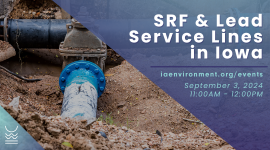 | SRF & LSL Webinar The State Revolving Fund (SRF) is one of Iowa’s primary resources for financing drinking water infrastructure and water quality improvement projects. Between the Clean Water Loan Program and Drinking Water Loan Program, communities, watershed groups, and public water systems can access low-interest loans to finance projects that range from wastewater treatment to drinking water treatment upgrades, stormwater management, source water protection, and more. On Tuesday, September 3, IEC and community partners will present on Iowa's State Revolving Funds in action. This free webinar will include background on the SRF, information about increased funding made available through the Bipartisan Infrastructure Law, examples of financing water assets in communities, updates on community lead service line replacement projects, and time for a Q&A from the presenters. If you are interested in learning more about Iowa's State Revolving Funds and lead service line replacement efforts in Iowa, check out our newest factsheet. |
|
|
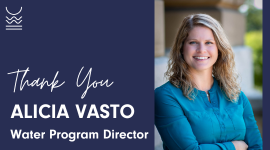 | IEC Staff Update Please join IEC in thanking Water Program Director Alicia Vasto for her five-plus years of service to our organization. Alicia has accepted a role with another environmental organization, and she left the IEC team earlier this month. Alicia's expertise, dedication, and leadership have progressed the statewide conversation around water quality, stewardship, and health. As many of you may know, Alicia oversaw IEC's advocacy on fertilizer pollution issues, the expansion of Iowa Water Watch, and the organization's actions to strengthen oversight of concentrated animal feeding operations. Her work has made not only IEC, but Iowa, better. "I am so grateful for my time at IEC and the opportunity to work with so many of the organization's great partners and supporters," says Alicia. "I'm proud of what we've done together and look forward to seeing what's next for IEC's crucial water policy work." Thank you, Alicia, and good luck on your next adventure! | |
|
|
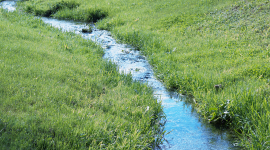 | Pinhook Farm Water Journey Seth Watkins, fourth-generation Iowa farmer and consultant on BlueGAP, has an ongoing series called 'The Pinhook Farm Water Journey' where he tracks water from his family farm all the way down the Mississippi River. Leading him through narrow creeks and inaccessible rivers, this narrative explores the consequences of modern agricultural practices and the consequences casted downstream. Seth writes "The purpose of my trip is to understand the impact of nitrogen pollution in the Mississippi watershed. Specifically how the nitrogen used to raise crops in Iowa impacts the lives of other people and other living things downstream." As discussed previously on Iowa Water Watch, the Gulf of Mexico's dead zone has expanded to over four million acres or more than 6,700 square miles. This is largely due to fertilizer runoff, such as nitrogen and phosphorus, flowing from farmland in Iowa and other states into the Mississippi. Read more about Seth's journey on his Substack. |
|
|
| | 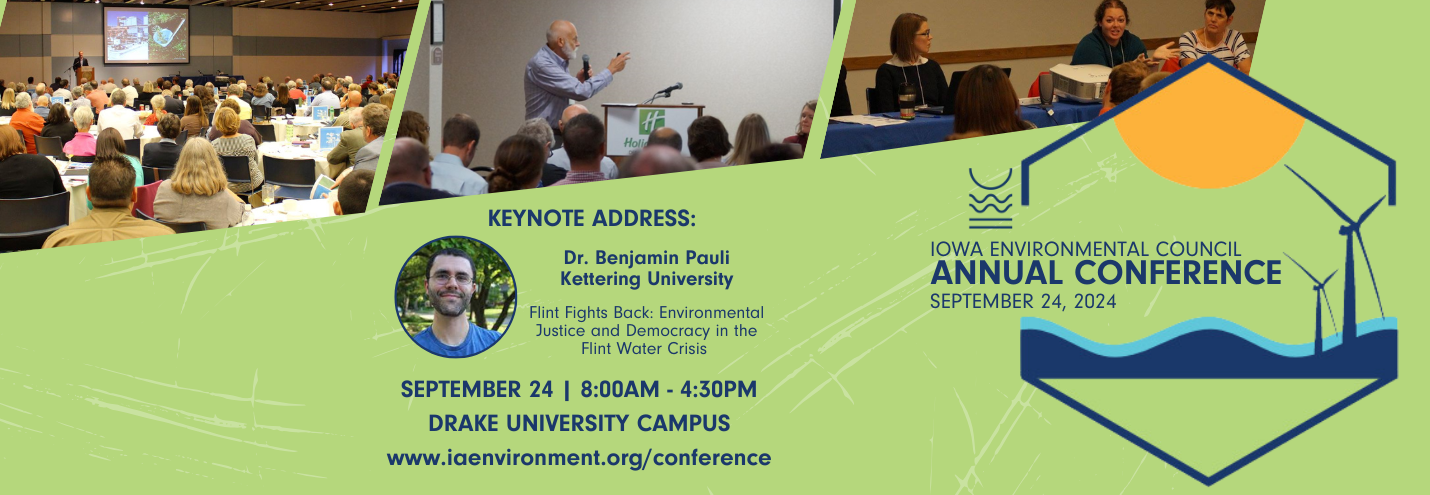 | | What's new in Iowa's water news: |
|
|
| | | 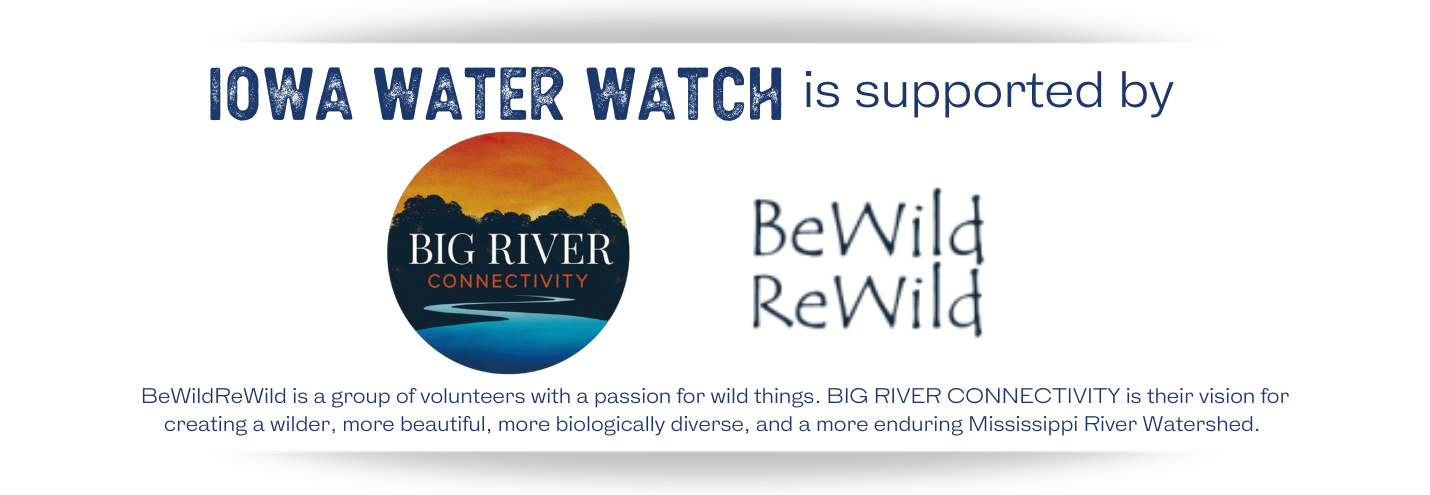 | | | Iowa Environmental Council
505 Fifth Ave., Suite 850
Des Moines, Iowa 50309-2317
515-244-1194 | iecmail@iaenvironment.org |
|
|
|
|
|